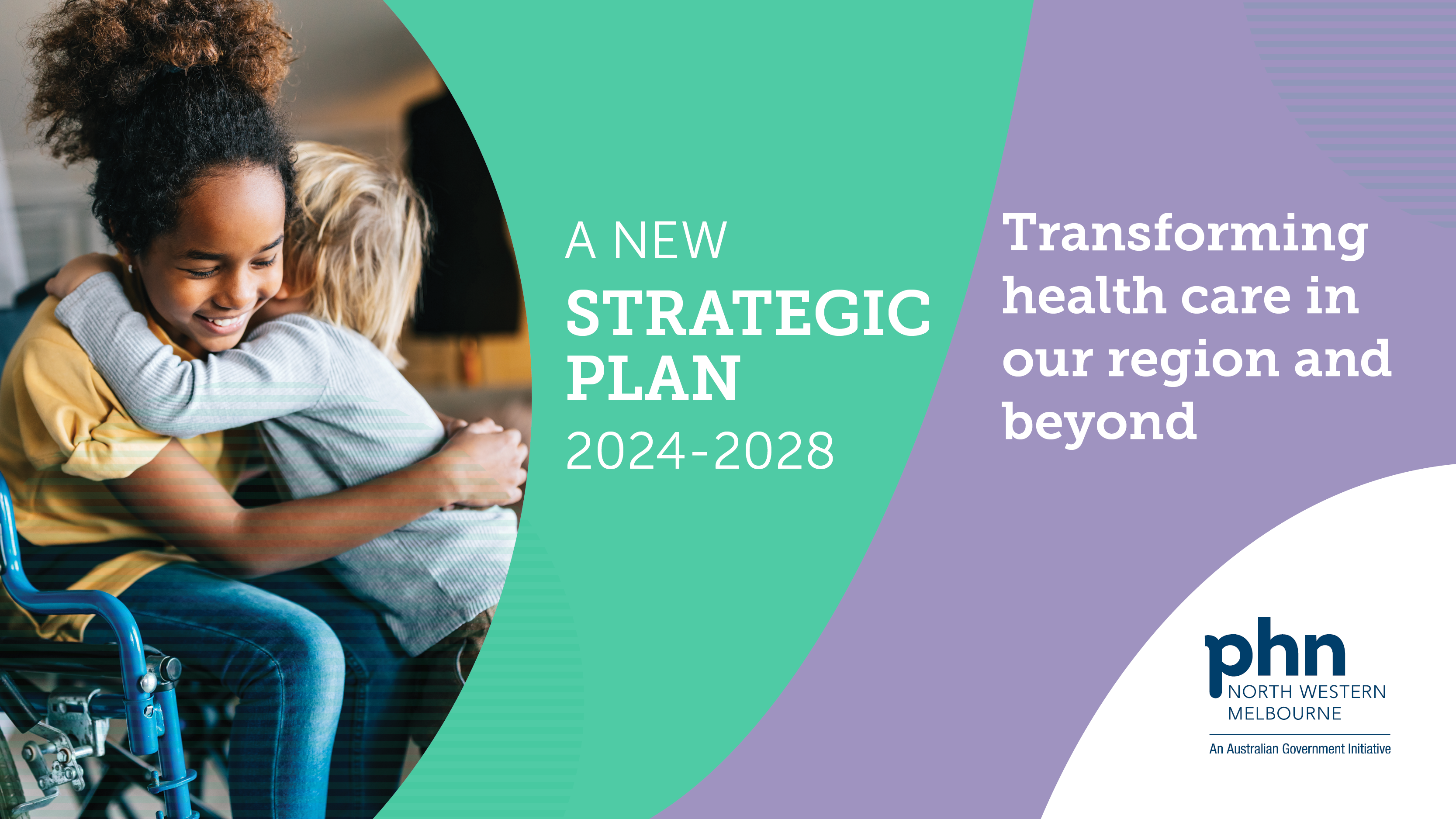
Transforming the local primary and wider health systems are key elements of North Western Melbourne Primary Health Network’s new Strategic Plan, launched this month.
The plan – the result of consultations with primary health care providers, and NWMPHN’s Board, Clinical and Community councils – will guide the organisation for the next 5 years.
Building on previous strategies, it commits NWMPHN to improving the health system. This includes continuing to build the principle of health equity, in line with international standards, into work that tackles local priorities and global health challenges.
“Transforming the health system is a vision that can only be achieved with everyone working together – with the support of our commissioned services, the health care community in our region, and the state and federal governments,” says NWMPHN chief executive officer, Christopher Carter.
“Our goal has always been to create a healthy community, and the only way to do this in a meaningful fashion is through the processes of consultation, collaboration and codesign with primary health providers and the people they serve.
“Every year NWMPHN commits more than $100 million to funding services in the physical, mental and allied health sectors. To continue doing that in a way that recognises and upholds our responsibilities to our local and broader community, a clear-eyed set of objectives is essential.
“Updated and adjusted to reflect the changing needs of our community, the Strategic Plan delivers exactly that.”
There are 31 primary health networks across Australia. NWMPHN is one of the largest and busiest, serving a vibrant multicultural community of over 1.9 million people spread across 13 local government areas including Melbourne’s CBD, western and northern suburbs.
“… deep and robust conversations and collaborations … “
It is also responsible for overseeing several statewide and national programs funded by the Victorian and Australian governments. These include the Doctors in Secondary Schools program, the rollout of Priority Primary Care Centres, phone service system development and reporting for the national Head to Health mental health service, the Victorian HIV and Hepatitis Integrated Training and Learning program, and the Strengthening Care for Children project.
It plays a leading role in education and advocacy for primary health practitioners. It also is a key partner in developing innovative programs in areas as diverse as tackling family violence and improving physical and mental health for residents of aged care homes.
In addition, it is pioneering a collaborative approach to compiling health needs assessments that provide primary and tertiary care providers – as well as policy-makers – with unparalleled data-driven insight into physical, mental and social health demand.
“Building a better health system is a collective responsibility, and NWMPHN and its partners has a leading role to play,” said Christopher Carter.
“Our new Strategic Plan supplies the framework and protocols that will engender deep and robust conversations and collaborations across the coming half-decade. It will guide us in working with the health care sector and residents to change, innovate, measure and deliver our vision to create a healthy community.”
The Strategic Plan forms an integral part of NWMPHN’s suite of key documents. The others are its annual reports, Access and Equity Framework, Community Participation Plan, Commissioning Framework, and Modern Slavery Policy and Statement.




